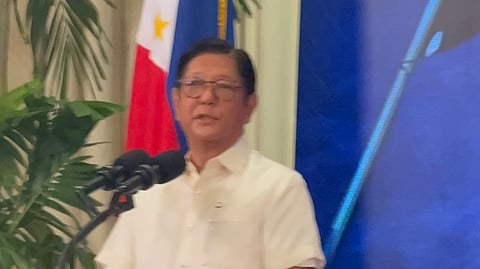
- NEWS
- the EDIT
- COMMENTARY
- BUSINESS
- LIFE
- SHOW
- ACTION
- GLOBAL GOALS
- SNAPS
- DYARYO TIRADA
- MORE

President Ferdinand “Bongbong” Marcos Jr. on Monday announced the appointment of former Supreme Court Associate Justice Andres “Andy” Reyes Jr. as chair of the Independent Commission for Infrastructure (ICI), tasked with probing alleged irregularities in government flood control and other infrastructure projects.
Speaking at a press conference, Marcos said the commission would also include former Department of Public Works and Highways (DPWH) Secretary Babes Singson and SGV & Co. Country Managing Partner Rossana Fajardo, with Baguio City Mayor Benjamin Magalong serving as special adviser.
“The ICI, we’ve come to call it the ICI because it is the Independent Commission on Infrastructure… Justice Andy Reyes will be the chairperson of the ICI. He has a very good record of honesty and fairness, and a good record of being able to find justice for those who have been victimized,” Marcos said.
He described Singson as someone with intimate knowledge of government infrastructure and Fajardo as bringing expertise in accounting and forensic auditing. Marcos also highlighted Magalong’s investigative experience, including his work on the Mamasapano incident, as key to the commission’s operations.
Marcos stressed the commission’s independence, noting that the administration would not interfere in its work. “We were not about to direct them as to how they were going to conduct their investigations and we are going to leave it up to them,” he said.
The ICI is empowered to subpoena records and conduct hearings, with findings to be forwarded to appropriate agencies such as the Department of Justice or the Ombudsman. Marcos clarified that the commission itself will not hold people in contempt, but agencies receiving its recommendations retain that authority if subjects fail to cooperate.
The President emphasized the urgency of the investigation, citing complaints submitted through the “Isumbong Mo sa Pangulo” platform. He said the commission has already decided to meet daily to organize its secretariat and operational procedures, with the goal of swiftly identifying lapses and proposing reforms to prevent future anomalies.
“What we really want is to fix the system,” Marcos said.
